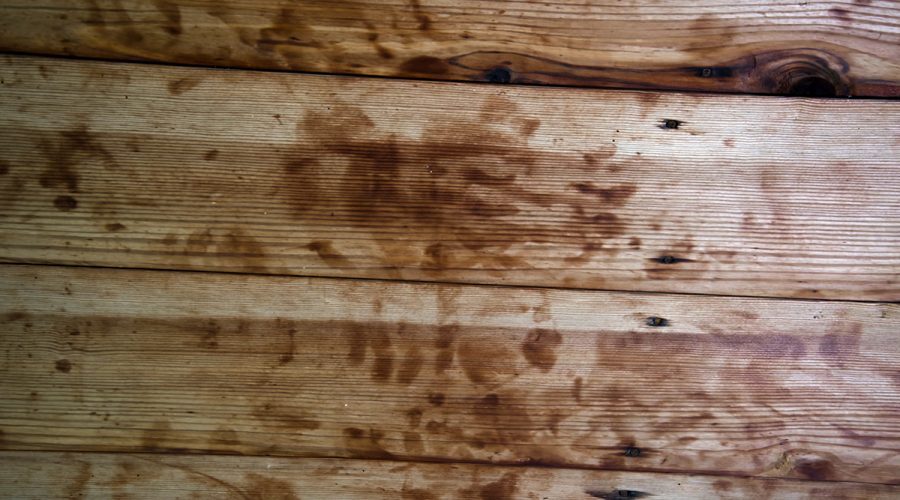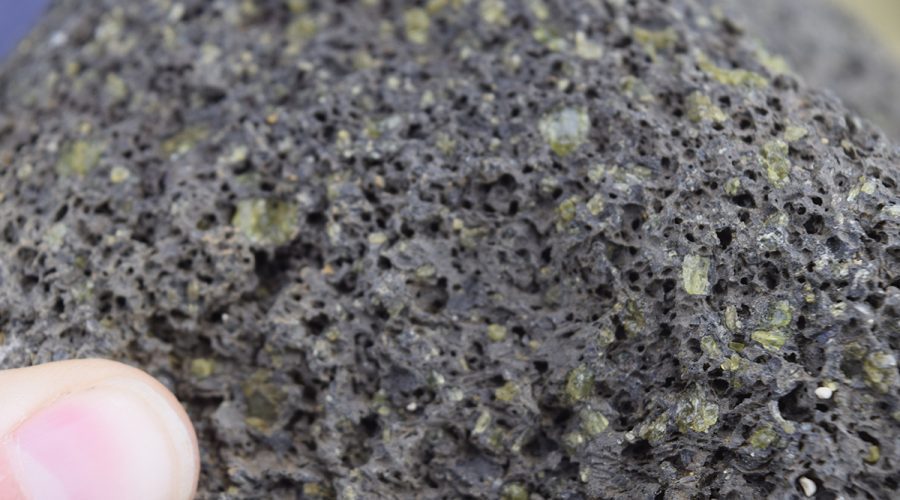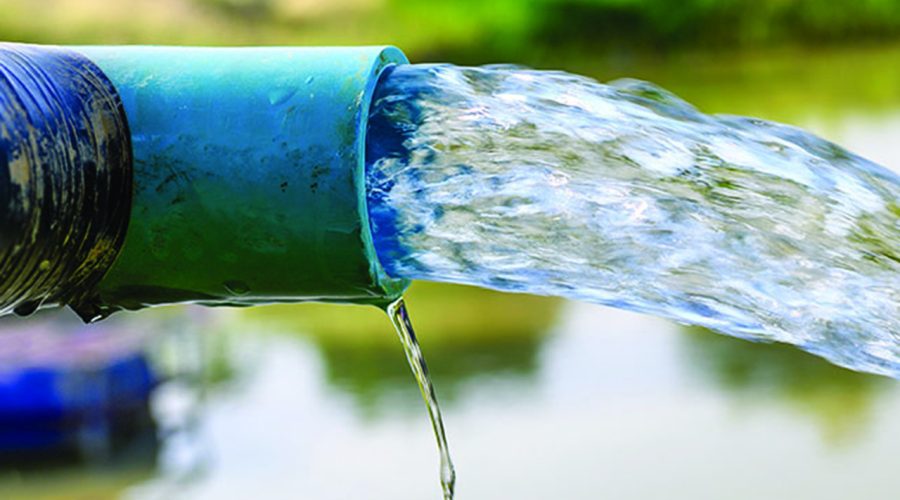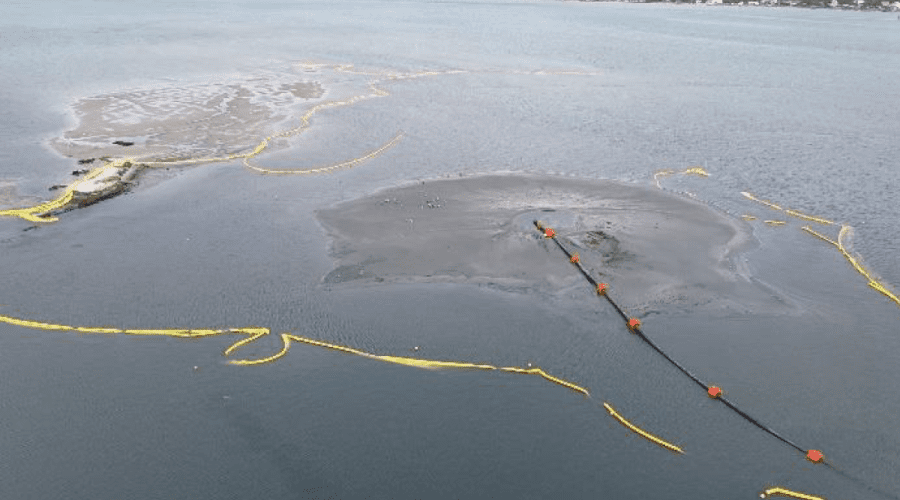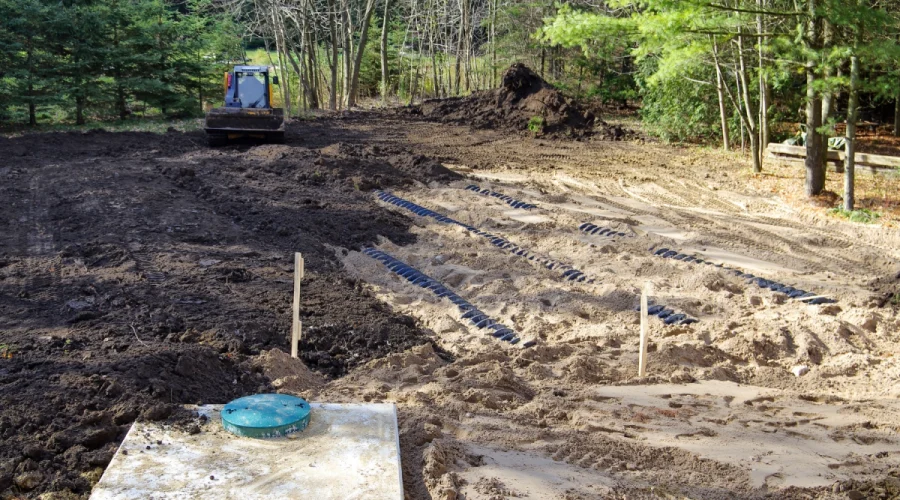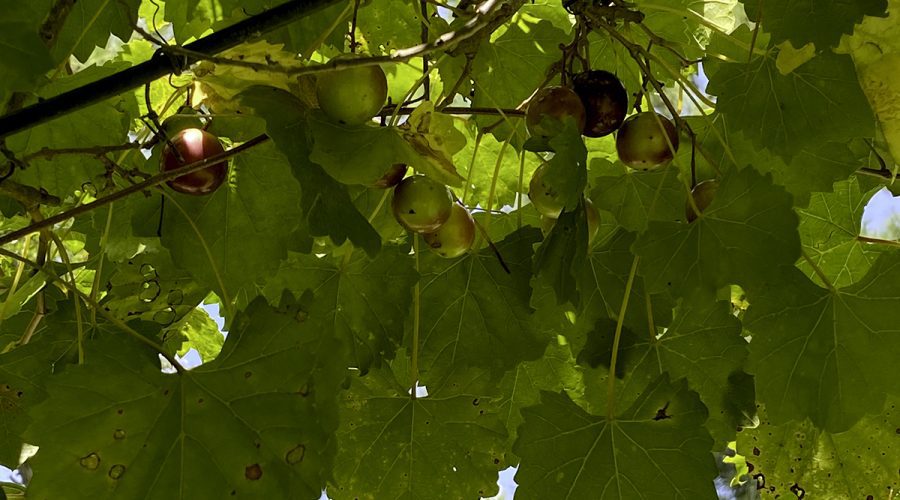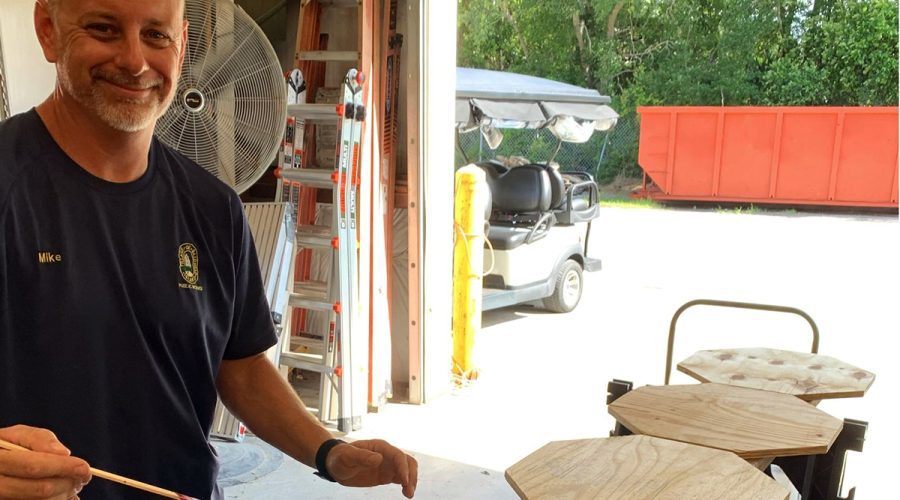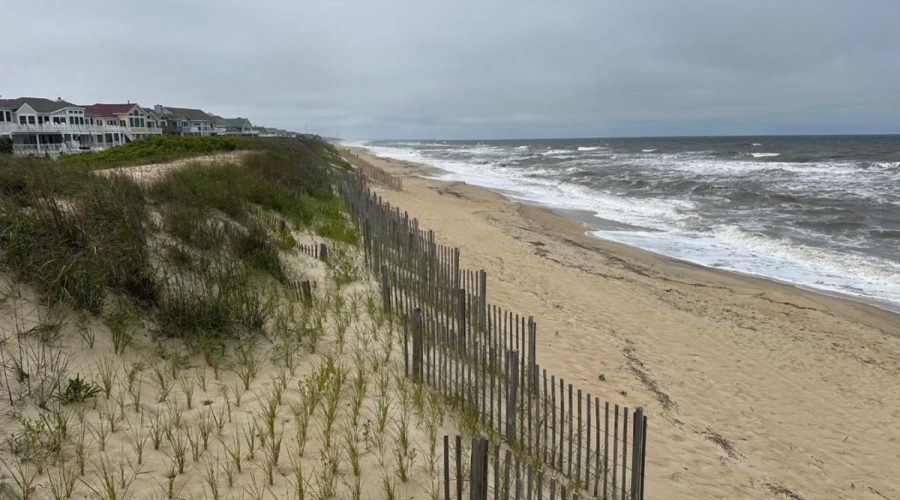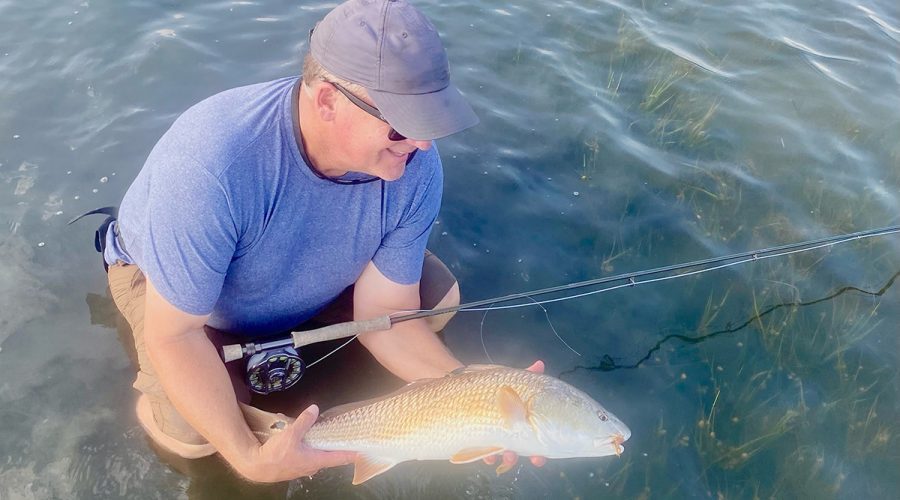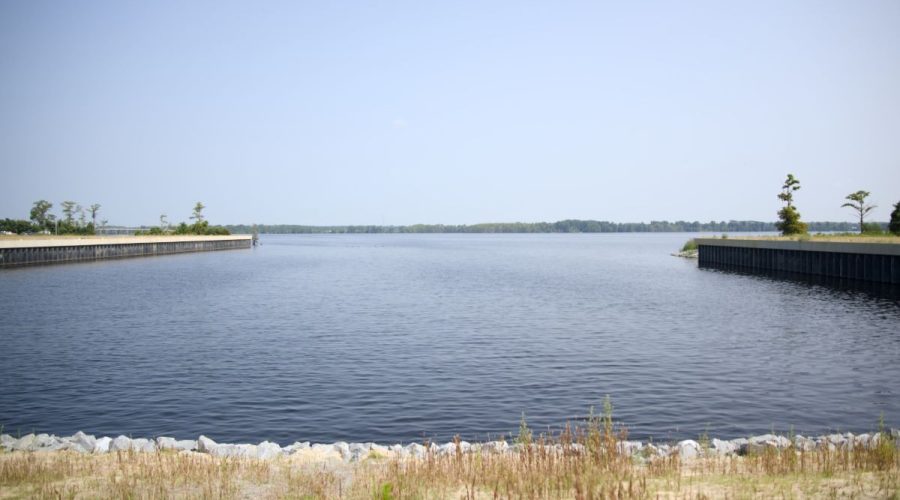Steve Smith, a Virginia native and East Carolina University graduate who was serving his second term as Topsail Beach mayor and had a reputation for educating himself on coastal issues, died Friday at 73.
Featured
Preserved Skinnersville church bears builders’ handprints
Rural Washington County is home to a restored 170-year-old house of worship on the National Register, and the nonprofit group formed to restore the structure likely built by enslaved people says it offers revealing glimpses into our past.
Vesta says olivine sand carbon project at Duck yielding data
The light green sand from a Norway mine deposited nearshore earlier this year in Duck is part of a pilot project studying how the material, when activated by seawater, removes carbon from the ocean and atmosphere.
Update: PFAS groundwater rule OK’d for public comment
The North Carolina Environmental Management Commission on Thursday unanimously waived the normal 30-day public notice, expediting the rulemaking process covering the compounds classified as likely carcinogens.
Plan in motion to build resiliency in Carteret’s North River
Coastal Carolina Riverwatch has worked with North River residents on a long-term plan to address multiple flooding challenges in the flood-prone, unincorporated area of the county .
Redfish through seasons: Target wisely, release carefully
Popular with anglers, to catch red drum, the state saltwater fish, takes experience and know-how, and preserving them for the future requires care and expediency in returning to the water those you boat.
Cape Lookout dredge spoils used to restore vanishing island
A haven for waterbirds since at least 1970, the quickly vanishing Sandbag Island near Harkers Island was recently expanded from a tenth of an acre to 5 acres using spoils from a dredge project around Cape Lookout Lighthouse.
NC focuses on helping municipal water, sewer — not septic
Some towns are providing assistance for people on private systems, about half the state’s households.
Coastal fall gardening a challenge; can still yield rewards
Autumn is starting to signal its arrival, and while spring planting gets all the attention, this region offers two growing seasons with the promise of success, despite pests and problems unique to the coast.
Bald Head Island curfew put to rest as staff eyes cameras
Public resistance to a proposed ordinance setting a curfew for teens has prompted village staff to instead look to camera systems and other ways to curb late-night sign vandalism and water-balloon attacks.
Expectations: ‘Make the best of the way things turn out’
How and where you set your expectations ahead of a planned fishing trip determines how that adventure will turn out far more than the number of fish boated.
Commission advances rule for straw bales in lieu of fencing
The Coastal Resources Commission on Wednesday unanimously approved the fiscal impact analysis of the proposed rule, which officials don’t expect to result in a significant increase in the use of straw bales to curb erosion.
Conchologists expand, revise popular seashell field guide
Seashell enthusiasts teamed up to revise and expand the decades-old “Seashells of North Carolina” written in 1997 by Hugh Porter, who had a 55-year career at UNC Institute of Marine Sciences, and Lynn Houser.
Division, nonprofit team to tag red drum, track by satellite
Popular among anglers, little is known about the reproduction and migration of the state’s official saltwater fish, which the N.C. Division of Marine Fisheries and N.C. Marine & Estuary Foundation’s new pilot tagging study seeks to remedy.
Perquimans answers longtime call to develop water access
The county last year completed a $7 million deep-water boat basin on the Perquimans River near Hertford, the first step in officials’ decades-long goal of developing the waterfront for commercial use.
A Forgotten People: Bohemian oyster shuckers on NC coast
“By drawing especially on coastal newspapers, and with help from some wonderful librarians, archivists, and museum curators, I will try to sketch the best portrait I can of the Bohemian oyster shuckers and their lives on the North Carolina coast between 1890 and 1914,” historian David Cecelski writes.


